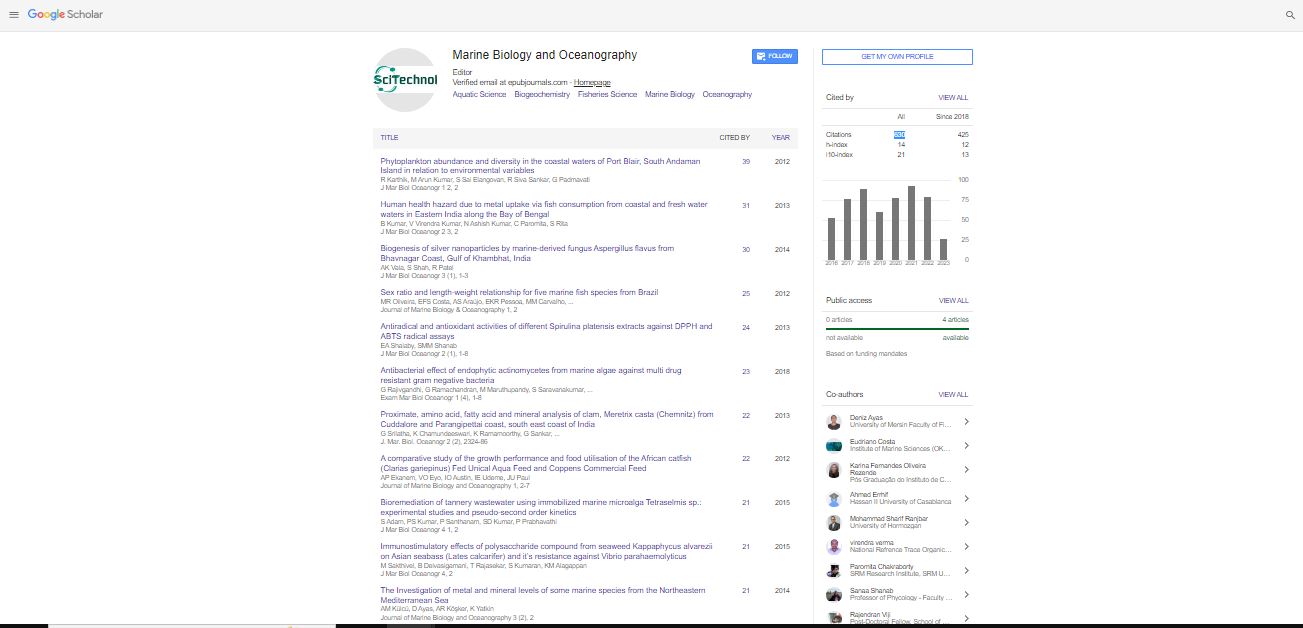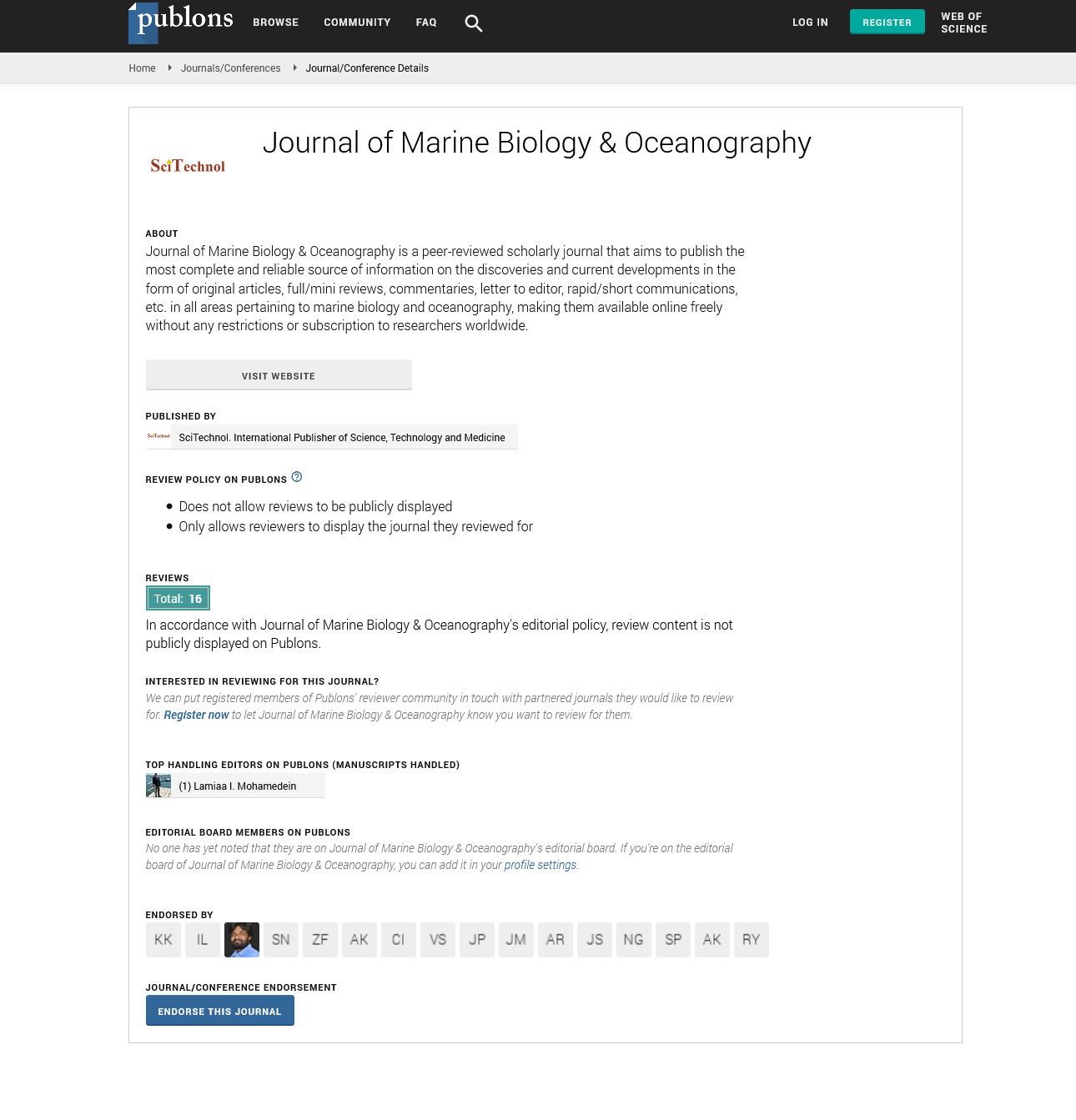Characterization of the nutritional composition and ontogenetic variations of cultured gilthead seabream and European seabass reared in southern European estuaries
Carolina Vaz Vargas Pinheiro da Rocha, Cabral HN, Nunes C, Coimbra MA, Goncalves FJM, Marques JC and Goncalves AMM
University of Coimbra, Portugal
Universidade de Lisboa, Campo Grande, Portugal
Irstea, UR EABX, 50 avenue de Verdun, France
CICECO - Aveiro Institute of Materials
QOPNA, Department of Chemistry, University of Aveiro, Aveiro, Po
: J Mar Biol Oceanogr
Abstract
The nutritional value and ontogenetic variations of cultured fish was assessed for European seabass (Dicentrarchus labrax) and gilthead seabream (Sparus aurata) reared in semi-intensive systems in two Portuguese estuaries, the most common fish rearing method in Portugal. Differences between the organoleptic composition of the same species reared in different aquacultures was assessed through the quantification of total protein, carbohydrate and fatty acid profiles. A significant influence of the rearing site was found for both species regarding carbohydrate content and fatty acid profiles, especially unsaturated fatty acids. No significant differences were found among groups concerning protein content. Differences in fatty acids and carbohydrates content between juvenile and adult stages were found for all groups studied. The present work supported the existing evidence that semiintensive rearing systems are subjected to the variability of extrinsic factors, potentially resulting in different water composition among systems influencing the nutritional value of the same species depending on the production site (Alasalvar et al. 2002; Fuentes et al.2010). From a consumer’s perspective, and given the benefits from fish consumption due to their high content in omega-3 fatty acids (EFSA, 2014), such differences may come as a disadvantage, as it is expected for a product to provide equal nutritional properties and benefits regardless its origin. From the farmer’s perspective, such vulnerability requires constant monitoring of the parameters within facilities, to avoid losses of production. Further studies could define the parameters to be regulated and monitored in semi-intensive systems to obtain the best product with the highest quality.
Biography
Carolina Vaz Vargas Pinheiro da Rocha has completed her MSc in 2017 at the University of Lisbon, Portugal, and is currently a PhD student of the University of Coimbra, Portugal. She has specialized in aquatic ecology, focusing on the study of the impact of water quality in fish species from aquacultures in transitional systems, through the assessment of the macromolecular structure (in fatty acids, carbohydrates and proteins) of organisms as biomarkers. Her study also focuses on the impact of anthropogenic activities and microplastics in aquatic environments and biota.
E-mail: carolina.vpr@gmail.com
 Spanish
Spanish  Chinese
Chinese  Russian
Russian  German
German  French
French  Japanese
Japanese  Portuguese
Portuguese  Hindi
Hindi 
